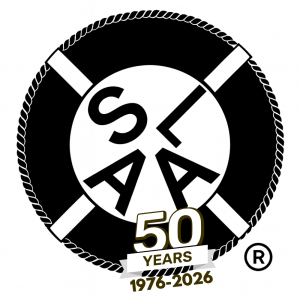The Question:
Is it appropriate to list a Couples in Recovery meeting on the SLAA website?
It is indeed an interesting issue. While the couples meeting seems to be welcoming to members of various S programs, it lists itself as a CiR group. From the intergroup level, that would appear to be going against the intent of Tradition 3. The purpose of SLAA is to help the suffering sex and love addict, not necessarily the couple that needs recovery. I would also wonder if, in keeping with Tradition 4, having a CiR meeting on the SLAA schedule would affect other groups in the Houston area. Could it possibly confuse newer members as to the purpose of SLAA in that area?
I would personally be very uncomfortable with keeping that CiR meeting on the schedule. I believe strongly in keeping the focus on the addiction, and not getting sidetracked with outside issues. A different program would be an outside issue to me, and keeping it on the meeting list would be no different than putting a political meeting or a church meeting on the list. All three of them could be helpful to some members in the fellowship, but they also could cause confusion and dissent within the meetings in that area.
If the meeting is an CiR meeting it does not go on a SLAA website because we are not affiliated with any organization besides SLAA (tradition3). It is also violating the traditions of SLAA to be reading our preamble when it is not a SLAA meeting (breaking tradition 1 focus on unity of SLAA groups and tradition 4 as it can effect SLAA as a whole if they did not consider asking before). I am sure the RCA has its own preamble no?
If the group is having trouble with being a part of an intergroup then they have every right to form their own. SLAA is not in charge of any other groups besides its own. Although SLAA members can attend this group it is not SLAA. SLAA members choose to attend this meeting if they want. If the group decided to call itself SLAA with the purpose of specifically recovering partnerships within SLAA then yes I think its alignment with the traditions. However it’s a complete red flag to newcomers and old timers to have Recovery anonymous trying to be SLAA. We need to have a singleness of purpose (tradition 5)
For me the question involves Tradition 10. Are relationships involving SLAA members an outside issue? Or, are building and nurturing the skills for SLAA members to have healthy relationships a key part of our purpose?
Because CiR is focussed on sex and/or love addiction I would argue that the CiR meetings do not represent an outside issue.
But perhaps, the Houston Couples in Recovery group (CiR) could be seen as an outside enterprise. So, Tradition 6 would seem to apply. Listing a group on our website may be seen as an endorsement and thus contrary to the spirit of the Traditions. Nevertheless, there is an overlap in this case and listing the CiR group may be of help, even great help, to sex and love addicts. It would be helpful to make clear on that website that the listing should not be seen as an endorsement.
One way to look at CiR meetings — since they include SLAA members — is as Open Meetings (even though they limit attendance to couples including at least one member of an S program thus calling themselves closed). I should think that listing Open meetings on an Intergroup’s website would be normal and appropriate.
Our websites are part of our public relations policy. We are guided to practice attraction rather than promotion. Through our web sites we provide information of use to SLAA members. Listing the CiR meetings seems perfectly appropriate from this perspective. So, this request appears to be in line with Tradition 11.
There are no financial issues involved in this question.
So, from my standpoint, listing the CiR on an Intergroup website is within the spirit of the Traditions as long as it is clear that the CiR meetings are not SLAA meetings.
However, the action is not up to FWS (we do not govern), but is a matter for the local Intergroup. In that regard the Traditions and the Concepts would come into play. Is there substantial unanimity around this issue at the Intergroup level? Are the representatives from the Houston meetings supportive of this idea? Is the Intergroup striving to be democratic in thought and action? I would suggest extended discussion and patience at the Intergroup level and not moving forward until substantial unanimity is achieved.
Tradition 4 states “Each group should be autonomous except in matters affecting other groups or S.L.A.A. as a whole.” By posting the CiR on the SLAA meeting list it may affect other groups, so this could be a violation of Tradition 4. If it is on the list with other SLAA meetings a newcomer might not know to differentiate the CiR meeting from a SLAA meeting, even if there is a description clarifying the CiR meeting is not SLAA. (How many of us have been at a single sex meeting only to have a newcomer of the opposite sex show up by mistake? I’ve even seen newcomers show up at intergroup thinking it was a regular meeting), so to avoid creating the potential confusion by not listing the CiR meeting with SLAA meetings.
Tradition 6 states “An S.L.A.A. group or S.L.A.A. as a whole ought never endorse, finance, or lend the
S.L.A.A. name to any related facility or outside enterprise, lest problems of money, property, or prestige divert us from our primary purpose.” If there is a spot on the Intergroup website for “additional resources” (separate from the SLAA meeting page) it might be appropriate to list the CiR meeting on that page, as long as there a disclaimer clearly stating that these resources are separate from SLAA and that the Intergroup and SLAA as a whole does not endorse these sites.
As a longtime member of SLAA I have watched while many versions of our recovery program have popped up, some thriving, most just surviving or quietly fading away. In the Tampa Bay area we once had a dynamic, thriving women’s meeting, but one day the attendance dropped suddenly and it never grew again, finally fading away a few months later. I have also seen SLAA meetings in general, many of them, become much more focused on help each other in recovery to navigate couple-ship and other close relationships, a much needed support for people whose families provided few or none of the models for healthy relationships for us growing up, and who then found refuge from loneliness and lack of ?? inside ourselves in social and emotional anorexia, sexual acting out or in, unhealthy relationships, etc.
I think we should encourage special purpose meetings for couples to be part of our FWS network. I would prefer they labeled themselves as an “SLAA Couples group, open to those from other “S” fellowships, and couples of any genders.” Or something like that. Like all groups, they would meet the broad, forgiving standards for individual groups of SLAA, and be free to find their own connection with a Higher Power through group conscience of what their customs and traditions (small “t”) will become as they try various formats, etc. as a group.
I tried to get help with my partnership issues in the early years of what is now a 20 relationship, now legal in the sight of the law (thanks to the Supreme Court), from Recovering Couples Anonymous, but was told I could not attend alone, ever, and that the group was limited to heterosexual couples.
I think what this group is trying to do is needed and worthwhile supporting, and either as a “related fellowship” as are others we have on our website, or as full members of FWS, I wish them well.
The other tradition is Tradition 4 Each group should be autonomous except in matters affecting other groups or S.L.A.A. as a whole. I also read that to apply to intergroups if the Intergroup wanted to put that information on their website as a service to the addict still suffering I don’t see a problem with that as long as they make clear it is not an SLAA meeting


